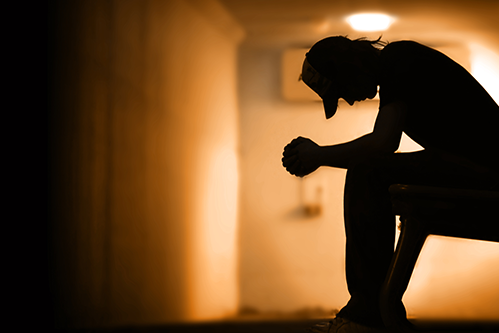
Teen Suicide | The Problem-The Signs-Help
Have you seen all the rage recently- “13 Reasons Why”? There have been mixed reactions.
NY Times opinion How ‘13 Reasons Why’ Depicts Teenage Suicide1: (news article, May 2, 2017):
To the Editor
MARGE KELLER, CHICAGO, “I watched “13 Reasons Why” and by no means did I find it was, as the creators sought, ‘helpful to struggling kids.’ Just the opposite. I found it painful, a little too close for comfort and possibly the gentle push some kids might feel in crossing that line of no return.
I write from firsthand experience, when I was in college. If it weren’t for the teacher who happened to stop by her office on her day off and read the note I had left for her, I would not be writing this today. I struggled with depression and contemplated suicide too often during my teens and early 20s. My 24-year-old niece committed suicide a few years ago.”
To the Editor
After working as a suicide counselor for many years, I still struggle when any person, especially someone young, believes that death is the only option, the only comfort. This Netflix series really disturbs me. I think that if the main character had lived instead of died, perhaps a different message could benefit any viewer on the cusp. The show didn’t glorify suicide. But it made the option more plausible.
To the Editor:
K.S., PORTLAND, ORE., “My 13-year-old daughter made a serious suicide attempt after reading “Thirteen Reasons Why” last year. While I don’t think there was a strict cause and effect, I do believe that the book tipped the scale as she was going through a difficult time at school.
(The writer’s full name is being withheld to protect her daughter’s privacy.)
To the Editor:
“The problem with the show is that it makes it seem as if there are no effective alternatives to suicide. It sends the message that adults are useless, peers are cruel and the only solution is to die. As a school counselor in a middle school, I find this message alarming.”
Jason Foundation2, “Suicide is the SECOND leading cause of death for college-age youth and ages 12-18. (2015 CDC WISQARS)
More teenagers and young adults die from suicide than from cancer, heart disease, AIDS, birth defects, stroke, pneumonia, influenza, and chronic lung disease, COMBINED. Each day in our nation, there are an average of over 5,240 attempts by young people grades 7-12.”
American Psychological Association3, “Suicide is a relatively rare event and it is difficult to accurately predict which persons with these risk factors will ultimately commit suicide. However, there are some possible warning signs such as:
- Talking About Dying: any mention of dying, disappearing, jumping, shooting oneself or other types of self harm.
- Recent Loss: through death, divorce, separation, broken relationship, self-confidence, self-esteem, loss of interest in friends, hobbies or activities previously enjoyed.
- Change in Personality: sad, withdrawn, irritable, anxious, tired, indecisive, apathetic.
- Change in Behavior: can’t concentrate on school, work or routine tasks.
- Change in Sleep Patterns: insomnia, often with early waking or oversleeping, or nightmares.
- Change in Eating Habits: loss of appetite and weight, or overeating.
- Fear of losing control: acting erratically, harming self or others.
- Low self esteem: feeling worthless, shame, overwhelming guilt, self-hatred, “everyone would be better off without me.”
- No hope for the future: believing things will never get better, or that nothing will ever change.”
Please Live4, “Please Live started with a caring teenager who saw a need in the world and decided to address it. As a child, Alexa Moody struggled with depression, which eventually lead to thoughts of suicide as a teenager. She received help and recovered, deciding then to go to college for Human Services. During the 2009-2010 school year, while she was a 19-year-old college student, there was a cluster of suicides within her community. Just minutes outside of Pennsylvania’s capital, Alexa heard of five teen suicides within the course of five months. She was heartbroken. Although she did not personally know any of the teens, her heart was torn for the friends and families left behind (known as suicide loss survivors). It was from this hurt and her personal experiences of depression and recovery that Alexa heard God’s voice telling her to do something about it.
Armed with a broken heart and a message from God, Alexa started Please Live in May 2010.
National Suicide Prevention Lifeline5, “We can all help prevent suicide. The Lifeline provides 24/7, free and confidential support for people in distress, prevention and crisis resources for you or your loved ones, and best practices for professionals. 1-800-273-8255
As mental health counselors and therapists at Counseling on Demand, we are sensitive to the plight of teens. If you, as a parent, friend, teacher, pastor- someone who cares and wants to know how to help a teen,we are online at CounselingonDemand.com. We can guide you.
1. Letter to the Editor, nytimes.com/2017/05/08/opinion/how-13-reasons-why-depicts-teenage-suicide
2. Youth Suicide Statistics http://jasonfoundation.com/prp/facts/youth-suicide-statistics
3. Teen Suicide is Preventable, American Psychological Association, apa.org/research/action/suicide
4. Alexa Moody, Please Live, http://www.pleaselive.org/about-please-live/
5. National Suicide Prevention Lifeline, suicidepreventionlifeline.org